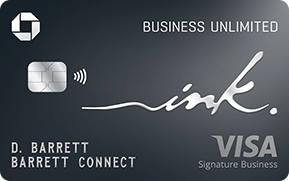Overview
It may not be as sexy as points and miles or even investing, but saving money is arguably the most important skill in your financial arsenal. Those who cracked it early in life reap the benefits further down the line, and they are numerous. From a healthy deposit for your first home to a solid emergency fund for when things go wrong in other aspects of your life.
On paper, saving looks simple. Spend less than you earn. But in reality, competing priorities, ever-rising costs, and unexpected curveballs can put huge dents in your strategy. The good news is that anyone can build a solid routine by taking small, intentional steps.
Here’s how to get started.
1. Set a Clear Goal
As with almost anything in life, it’s easier to save when you have a goal. A goal helps keep you focused and allows the next steps to be actionable. Without it, it’s easy to slip up or veer off course because you’re not aiming for anything. If you skip a month of saving when you don’t have an end goal, you don’t have anything to correct. If you mess up when you know you’re supposed to put $500 a side every month for your vacation next year, you can do what you can to get back on track next month.
Think of it like training for a race. Saying “I want to run more” is one thing, but “I want to run a 10K in six months” gives you a roadmap. Your savings should work the same way.
2. Build a Budget You Can Stick To
One of the biggest mistakes people make when they start saving is setting a budget that’s too tough to stick to. Not only is it almost impossible to keep up with sacrificing some of your favorite things, but the frustration at failing could prompt you to stop caring at all and do even worse next time.
Build an overview of where your money comes from and goes to. You’ll see how much you earn, how much you spend, and, in turn, where you can cut back to make those savings. It doesn’t need to be a crazy complex spreadsheet (unless you’re into that), but understanding your funds will have you making better decisions. Something as simple as realizing you spend $5 on coffee every day can make a huge difference.
3. Pay Yourself First
One of the simplest and most effective tricks for saving is treating it like an expense. As soon as your paycheck hits, put the money you want to save into your savings account. That way, it’s gone from your checking account, and you can now use what’s left as your true budget. Setting up an automatic transfer can go a long way to ensuring you stick to that number.
Out of sight, out of mind means steady growth for you.
4. Start Small, Stay Consistent
Don’t fall into the trap of thinking you need to set aside $500 every month if that’s simply not possible. Starting small can go a long way, especially for newer earners with less income. Even $20 a week puts $1,000 in your savings by the end of the year. And even if that doesn’t sound impressive, you’ve still built a habit, and that can be scaled up when you have more funds available to you. It’s a snowball effect, both for your finances and your discipline.
5. Use Separate Accounts
Using separate accounts might sound counterintuitive. It makes sense to have everything linked and with the benefits of whatever bank or organization you’re using to keep your money, right? But when things are so closely linked, it’s easy to move money back and forth, meaning you’re more likely to dip into those savings.
We’d recommend opening a separate account for your savings. Even better, find a high-yield savings account that can help give them a boost. That way, they’re detached from your checking account and working their hardest for you. It’s a helpful psychological barrier, too, that keeps you on top of your goals.
6. Cut One Expense, Redirect It
You don’t need to overhaul your lifestyle overnight. Instead, pick one expense to cut and redirect that money straight into savings. For example, using the same coffee savings as before. If you switch to instant coffee and add $5 every day to your savings instead, you’re making a big contribution to your savings.
You can do this to multiple things in your life that add up, whether it’s a subscription, alcohol, or candy. It helps turn the feeling of sacrifice into quantifiable success.
7. Use Tech to Cut Corners
Your bank apps and other platforms can all do wonders for your savings. Simple features like round-ups can add a surprising amount to your savings as you go. With this, every time you spend using your debit card, your bank will round up the cost to the nearest dollar and put the difference in your savings. So if lunch costs $15.25, you’ll get 75 cents transferred to your savings account. Sure, one isn’t a big deal, but every transaction for an entire year could look completely different.
Also, lean into the graphs and data flows that are now presented in apps. The days of making your own are long gone, and there’s no excuse for not seeing where your money is going.
8. Build an Emergency Fund First
Before saving for big dreams, make sure you’ve got a safety net. Aim for at least $500–$1,000 to cover surprise expenses like car repairs or medical bills. Once you’ve got that, work toward three to six months’ worth of expenses.
Having this cushion keeps you from dipping into credit cards or derailing your long-term savings goals when life happens, because it will.
9. Be Careful with Credit Cards
We love credit cards, but they can be tough for those getting to grips with saving. In the same way that having your accounts linked can make it too easy to dip into your savings, a credit card can destroy any notion of budget. Many people see a limit of $10,000 and feel like they have that money. But when your income only equates to $3,000 a month, that’s a problem. If you have debt, you can count that against your savings in many ways.
If you feel comfortable using a credit card safely, make sure you set yourself boundaries. Never spend more than your budget allows, and put any blockers in place that you can to ensure it’s all under control. And always include credit card payments as part of your budget.
The Point
Saving isn’t about depriving yourself of life’s pleasures. It’s about gifting yourself more freedom and peace of mind in the long run. Start small, build the habit, and before you know it, you’ll have an emergency fund in waiting, next year’s vacation covered, and a housing deposit far bigger than you’d even need.
Get penny pinching. We promise you won’t regret it.









 by your friends at The Daily Navigator
by your friends at The Daily Navigator



